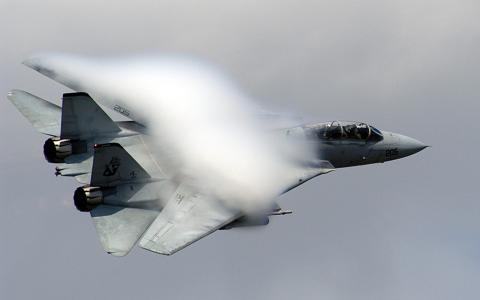
(Moguldom) - Billionaire legendary hedge fund manager Ray Dalio outlined some of the key issues he said investors and non-investors need to pay attention to as the war in Ukraine marks the start of what he described as a “new world order”.
Dalio, the founder of investment firm Bridgewater Associates — one of the world’s largest hedge funds — said he believes Russia’s invasion of Ukraine is the part of a bigger “war for control of the world order.”
“It is a very important battle because it will tell us 1) if Putin and Russia win or lose this first battle, 2) how powerful a weapon the American-led sanctions are, and 3) how other nations will align with either side or remain neutral,” Dalio wrote in an April 11 LinkedIn post.
Dalio is not the first to claim that the world is undergoing a dynamic shift that could change the way economies and markets operate.
A conspiracy theory known as “The Great Reset” — triggered by the World Economic Forum 2021 theme of the same name — claims that the global elite plan to dismantle capitalism and enforce a socialist world order.
Dalio’s analysis, however, is based on facts and possible scenarios that could lead to a win or loss for either Russia and its allies or the NATO (North Atlantic Treaty Organization) faction.
At stake in Dalio’s tea leaves is the U.S. either strengthening or losing grip on its position as a world superpower and “its control over the world’s reserve currency and capital markets system,” Dalio wrote. Other countries are betting and aligning with the side they feel will win the battle.
Dalio has warned multiple times before of impending war over conflicting values and wealth inequality. He has written about trade and capital war with China, and civil war in the U.S. He’s been predicting a capitalism crisis, has written about paradigm shifts, and suggested that inequality poses an existential threat.
Here are the key issues Dalio said to watch out for as the battle over the new world order rages on.
1. Who will win the battle and what will it mean?
For Putin, a win will only come if Russia manages to subdue the threat that Ukraine presents by leaning toward joining NATO. If Russia gains full control of the eastern provinces of Luhansk and Donetsk and manages to shrug off sanctions placed on it by the west, then Russia will have won.
Dalio wrote that it’s bleak to imagine what the Kremlin will do if it loses. The prospect of having them “raise the stakes” would be “very scary”, he wrote, referring to Russia’s nuclear option that could push the world into an existential war.
2. Will the sanctions be effective?
By instituting sanctions against Russia, the U.S. and other powerful western nations have basically weaponized the markets in hopes that other countries including China will fall in line and not support Russia. But this could backfire, as it already has with the dollar global position coming under threat, and could push Russia to “fight using other weapons”.
“If they are not effective, we will risk seeing America lose its most unique and greatest power—its control over the world’s reserve currency and capital markets system—as others increasingly escape it,” Dalio wrote. “This a real big deal for the power of the United States and the power of the dollar.”
3. How the sides are lining up
Dalio says in the war for the world order, countries will start to align with opposing sides as they did during World War II. Already the west has aligned with the U.S. while a few countries are leaning Russia’s way. Others, which may have territorial conflicts of their own such as China, are watching keenly to see how the Russia-Ukraine case is handled by the rest of the world.
4. Internal conflict over wealth and values
The war in Ukraine has brought forth internal conflicts over wealth and values that are causing political conflicts, Dalio wrote. Internal conflicts refer to a situation where the causes people are standing up for are turning out to be more important to them than what the general system is advocating for.
“This risk to the internal system typically shows up in the form of growing populism of both the right and the left,” Dalio wrote.
In the U.S., Dalio wrote, there seems to be a growing risk to the system as individuals and groups increasingly refuse to accept solutions presented by institutions, such as the Supreme Court, put in place to resolve disputes. The Supreme Court is “the ultimate arbiter in this constitutional, rule-of-law system,” he wrote. “We are seeing increasing moves by some to either gain control of it or not accept its judgments.”
The internal conflicts over wealth and values are reshaping what money and stores of value are, Dalio wrote. They are causing political conflicts that are so great that they threaten the U.S. domestic order and the enormous amount of debt and money creation that are reducing the value of debt and money.
By Kevin Mwanza
April 14, 2022



